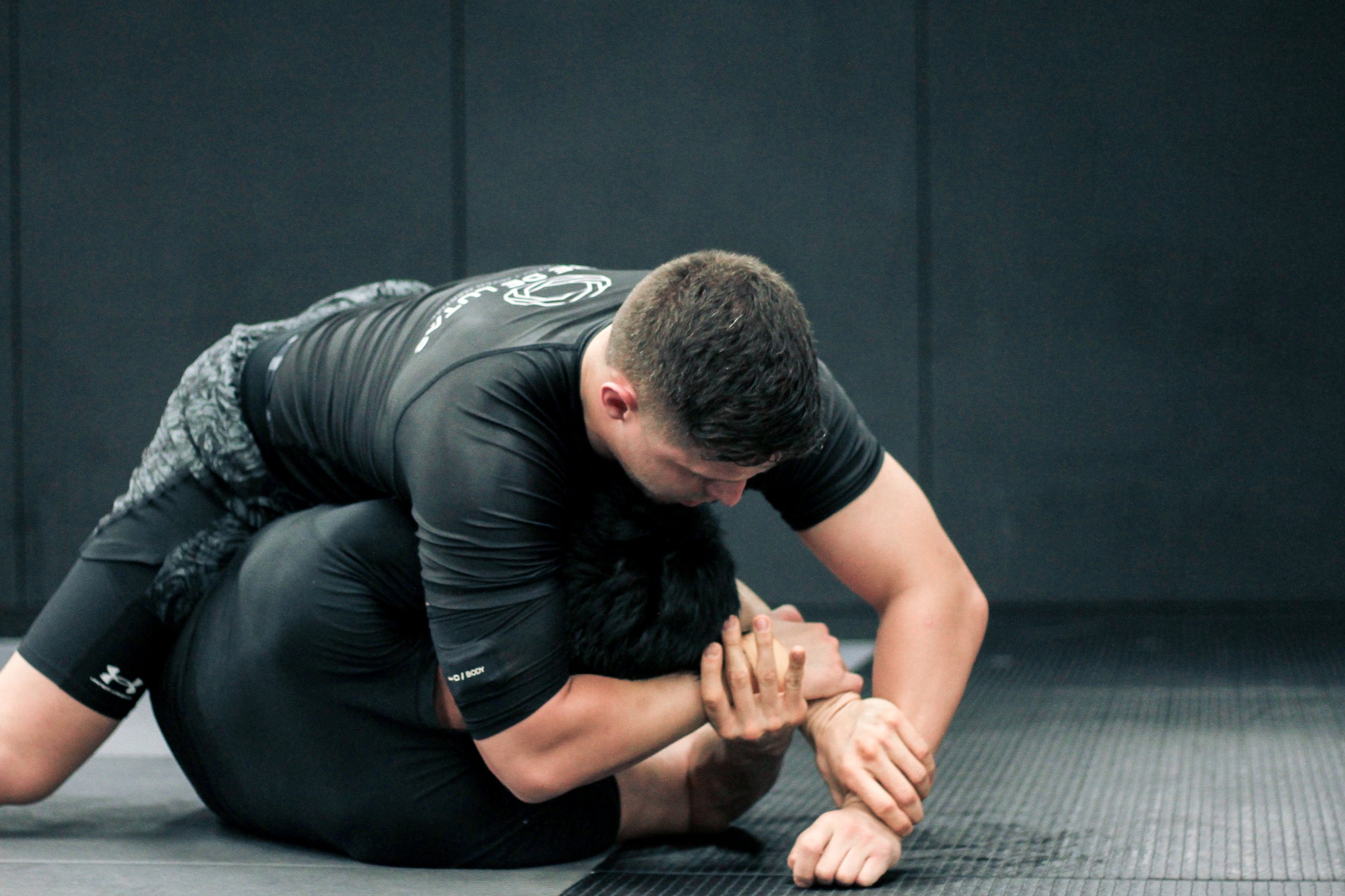The Art of Tapping
A tap typically happens when someone surrenders to a submission during a match in any martial arts like Brazilian Jiu Jitsu (BJJ), Judo, Wrestling or Mixed Martial Arts (MMA). It is defined as when a practitioner taps more than two or three times during the match.
Tap fast and tap early.
Tapping out is one of the first few lessons every beginner must learn. Imagine getting caught in difficult positions on the streets and the only way to tap out is either death or a few broken joints. Keep this in mind so the next you refuse to tap, you are risking your life and your physical body.
The gym should be a safe place for everyone of all experiences to practice and learn Jiu Jitsu.
There is simply no point in holding on to a submission that may potentially risk injuring yourself by just holding on. This is something we advise all Brazilian Jiu Jitsu practitioners to do regardless of belt rank and experience, especially on the training mats.
We have seen this repeated many times when one refuses to tap to a submission which results in an awful injury. Consequently, they delayed their training due to trauma or long-term rehab.
As coaches, we frequently remind our members to practice sparring safety. This includes tapping out when you should. It is also one of the biggest lessons for every Brazilian Jiu Jitsu practitioner. Learning it early helps you escalate your training.
When should you tap out?
When you couldn’t escape a submission (holding on is not an escape)
When you are feeling uncomfortable (eg: when your opponent who is 3x your weight is side controlling you, claustrophobia etc)
(Especially) When you are in pain/risk of injury
A way to identify your weakness
When you tap out, it highlights the areas that you need to improve on. If you are wondering what are your weaknesses, getting tapped out should be a moment of reflection as to why and how it happens. This way you can identify what went wrong during the roll that resulted in you tapping out. Once you have identified the mistakes you have made, you will be able to pay more attention to them the next time you roll.
Eventually, you will realise that you are tapping less and you are much more aware of the mistakes you have made. Make this a regular practice and you will notice how far along you’ve come in your journey.
Reduced Risk of Long-Term Injury
Injuries are nothing but the enemy of every martial artist (even hobbyists!). Tapping out fast and early helps you train longer and avoid any further injury in the long term. It is important to know your limits so you are conscious of when to tap out.
Tapping out protects you and your well-being in the long run. Trust us, it will be worth it.
The Best Teacher
Tapping out is one of your best teachers in any martial arts, especially in Jiu Jitsu. It doesn’t mean that you are weak or you’re not good at Jiu Jitsu, it is another step to learning and bettering yourself. It humbles us and teaches us the value of humility.
Understanding humility takes you far not only on the mats but in life in general.
It allows you to learn and understand yourself and others. It germinates empathy and compassion by surrendering our ego, false pride, arrogance and low self-esteem.
It is hard for any beginners to understand the importance of tapping out without knowing the reasons behind the practice.
Allowing yourself in bad positions is also an indicator of learning. The best part about Jiu Jitsu is that when you find yourself in a bad position that does not favour you in any way, your brain wires itself to use every means and technique you have in your arsenal to escape. This subconsciously makes you step out of your comfort zone and challenges you physically and mentally.


